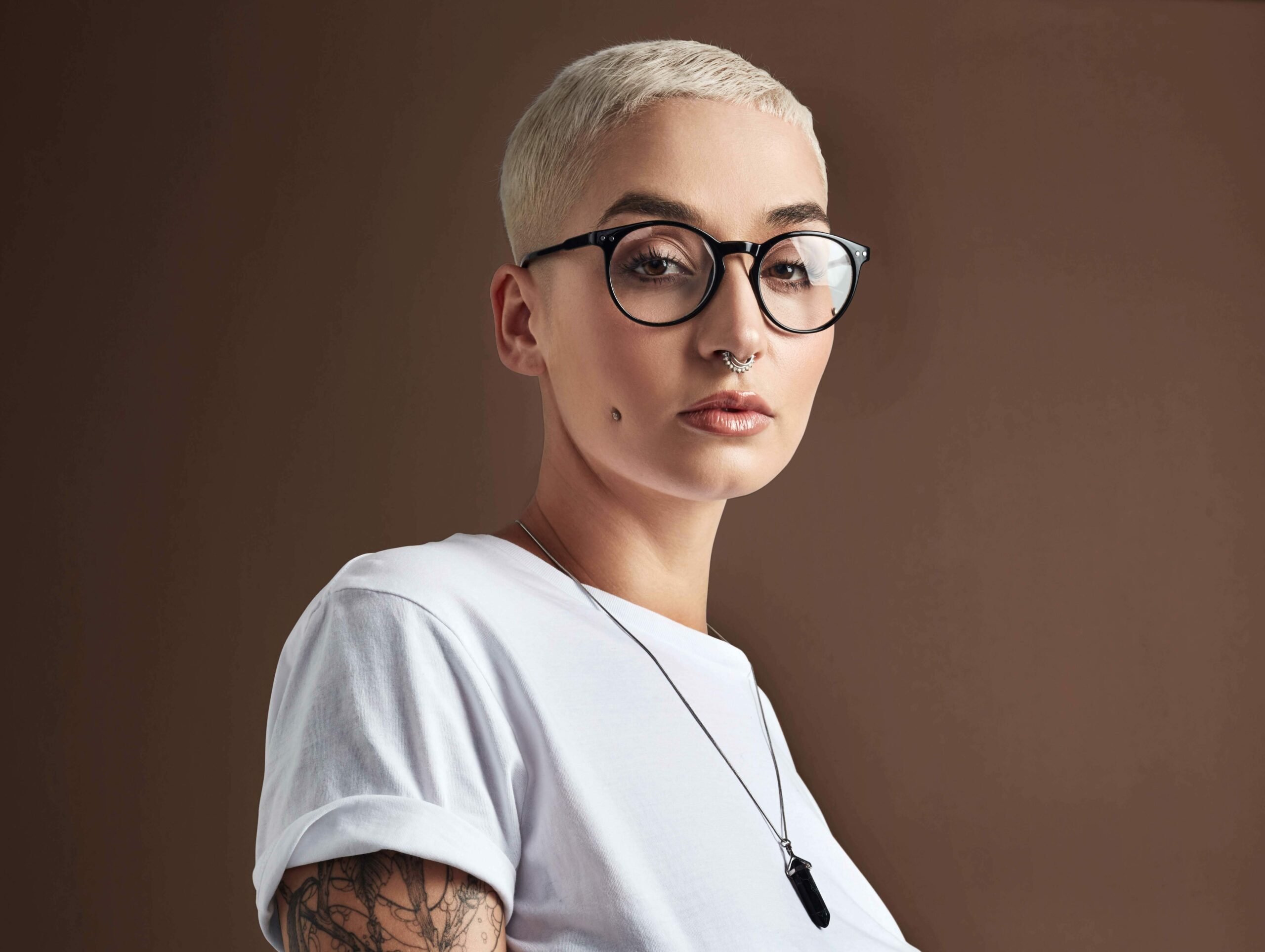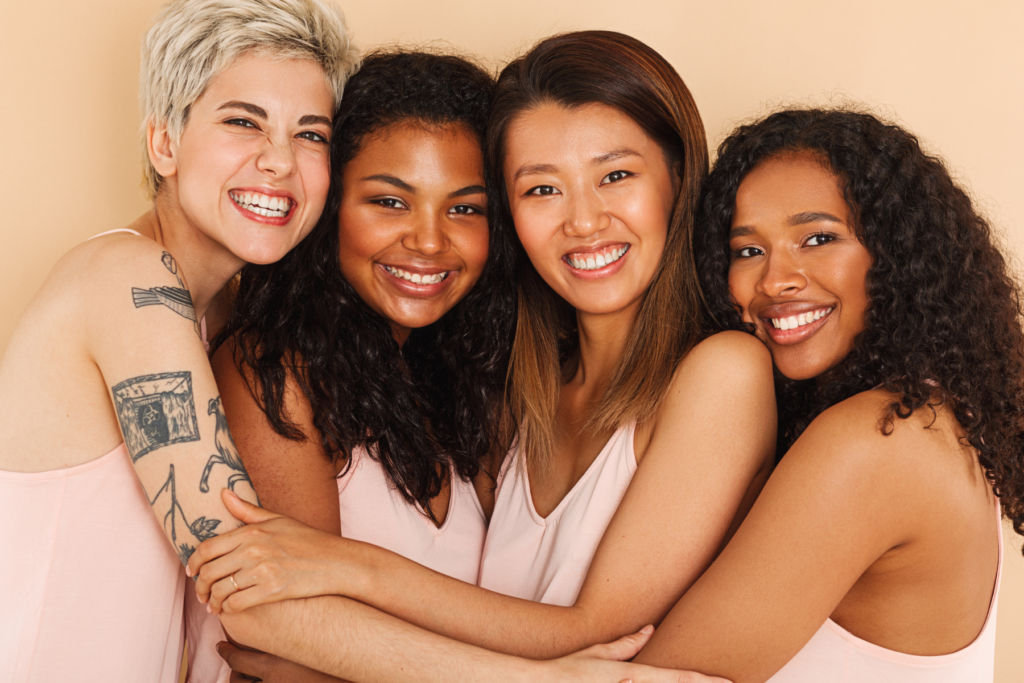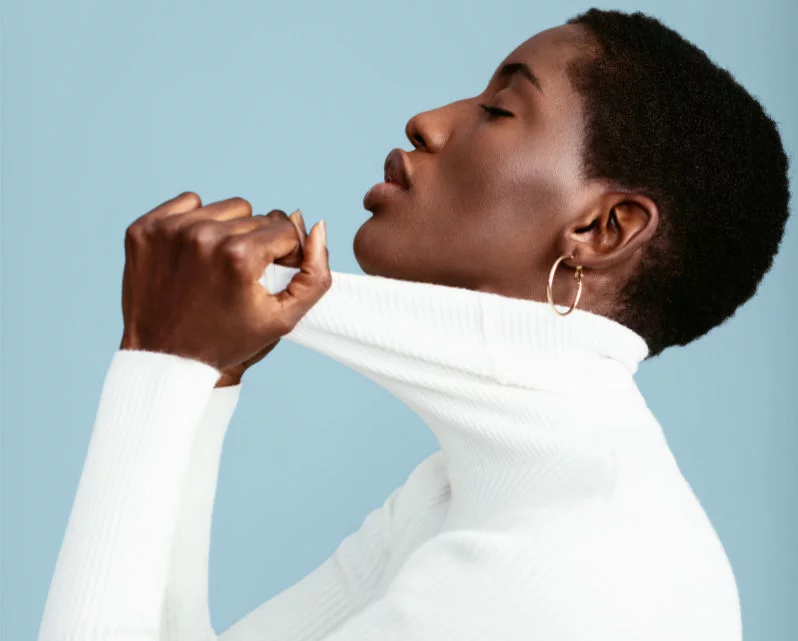Your hair and skin health can be affected by your period.
Hormone fluctuations can affect hair and skin
Have you ever noticed that your period affects more than just your mood each month? Do you find yourself wondering at the state of your skin or your hair right around the time of your period? You aren’t alone. Your period, and specifically the fluctuations in your hormones that occur around your period, can have an impact on both your skin and your hair. In addition, the loss of blood created by heavy or long periods can also impact hair and skin (and nails, too). And for women suffering from symptoms of uterine fibroids, these hair and skin changes can be even more pronounced.
You may notice your hair and skin are more oily
Just before your period begins, your body produces testosterone. This hormone creates sebum, an oil that can appear in your skin and hair. It is this oil that can lead to monthly acne and greasy hair.
If you want to reduce the amount of oiliness in your skin and hair, consider washing your hair more often during that time of month, and avoid oily moisturizers on your skin.
Or… that your hair and skin are drier
If your hair and skin doesn’t become extra oily every month, you may find yourself with the opposite problem: Dry skin and hair. The drop in estrogen levels that also occurs around a woman’s period can create a loss of water that leaves you high and dry.
If dryness is a problem, use more moisturizers around your period.
You may notice enlarged pores and pimples
Also due to the extra testosterone in your body around your period (and the extra sebum it creates), large pores and skin eruptions can make you feel self-conscious.
In order to help reduce this problem, you should:
- Avoid anything (such as thick makeup) that might clog those pores and cause more problems
- Keep your pillows extra clean.
- Double-cleanse at night and use an oil-fighting cleanser with salicylic acid.
- Increase exfoliation to 2-3 times per week or more and stimulate cell turnover by using products that remove dead skin cells and brighten skin.
- Use clay face masks can help with drawing out the impurities.
- Have extractions and clarifying facials.
Your scalp becomes irritated and sensitive
Another hormone in abundant supply around your period is prostaglandin. This hormone makes you more sensitive to pain. As a result, your scalp may also feel more sensitive and that might make your hair care routines painful.
To remedy this problem, you can always skip your hair care appointments, avoid anything in your hair that involves chemicals, and use less heat on your head. Some hairdressers believe that you should wait to color your hair till after your period is over because your color might not look the way it was intended because of all the hormones coursing through your body.
You lose more hair
The drop in estrogen levels that accompany a period can lead to hair loss. While most common after pregnancy and during menopause, this drop can also occur around your period.
Try not to put your hair up in restricting styles. Also, if you are losing much more hair than normal, contact your doctor.
Your period might affect your hair and skin. However, with the right care, you can counteract these issues and enjoy skin and hair that look good even during that time of month.
Viva Eve is committed to women’s health
At Viva Eve , we care about women’s reproductive health and feelings of well-being. As experts in the diagnosis and treatment of uterine fibroids and adenomyosis, we provide high-quality, personalized care for every patient we see. We will partner with you to determine the best way to treat your problematic symptoms.



